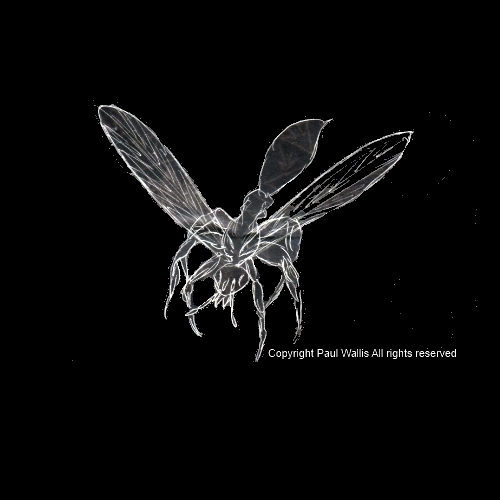
After 78 years of bickering, the People’s Federation of America and the United States of China have finally met to discuss a normalization of relations. Arriving majestically at the elegant “row it yourself” tent city American capital outside Albuquerque with its famous statue of a mystic American rodent with circular ears, the delegations settled in for discussions.
Negotiations began with the famous stone tablet sent by the Americans which said simply “Us’n critters wants to talk to you’n critters.” The initial Chinese response, which was “Huh?” required special ideographs for the acceptance. Using a mix of characters symbolizing the legendary WTF of China’s illustrious past and some thoughtful scatology, the meeting was arranged.
This process took a while as the stone tablets had to find their way to the right people on their own. Nobody could afford to go with them or guide them. Public transport, (known as Lao Ma among other things in China), helped a bit. Energetic raccoons did most of the heavy lifting.
The American delegation arrived first, on their high tech bicycles, the latest on the market since people remembered how to make bicycles in 2052. This stately procession pre-ordered the ceremonial potholes on the mysterious straight interstate swamps of the past to add elegance and dignity to the occasion.
Other, uninvited delegations also appeared. The Canadians, determined to convert with world to Neo Tim Hortonism, were politely turned away. The Australians, with their warlike Vegemite and sugary beer, were impolitely turned away, but swiped New Mexico as a souvenir décor piece while departing. In the resulting somewhat unexpected extension to the Grand Canyon which resulted, the meeting took place. The UK delegation, bearing the latest flints from their caves, were turned away but thanked for their donation and apparently fanatical commitment to something they seemed unable to define.
The Russians were invited back in 2089, but nobody knew where to find them. A party of explorers found Dostoyevsky, “not dead, just busy”, as he explained. He suggested following one of the trails of vodka bottles, because somebody would be definitely in the vicinity. He was right. After 9 years following a particularly long trail, they found a nice man living in an armoured samovar, but he didn’t want to come. (The man later became famous as the person who found a way to make boots out of jam and was the leading light of fashion for decades after.)
Background to the US China agreement
In the last 78 years, relations between the US and China had deteriorated to the point of a global economic catastrophe. Analysts have since said that paying attention to anything at all might have prevented the massive global meltdown. Prices soared to the point that a single potato was worth more than the entire Federal Reserve. (Nobody’s too sure what the Federal Reserve was, but apparently it had money at some point, and is therefore revered.)
Trade collapsed. Debt festered uselessly with amounts that could never be paid. That some of these amounts were pure fiction is of course not relevant. Billionaires found themselves worth the equivalent of a packet of Doritos (a magical aphrodisiac) overnight as prices simply added dozens of zeroes.
The word “economics” was banned in both countries in 2030 as subversive, but mainly because it was too depressing during a mega-Depression. Economists took to calling themselves geographers on the exhaustively verified basis that geography was incomprehensible. Even better, the highly qualified rustic rodents trying to enforce “social unity” couldn’t spell it. The persecutions stopped.
As nobody had any money, they stopped thinking about it. This 70-year process sometimes referred to as cranium extraction from rectum by aficionados was highly beneficial. Poverty was something you could share, a unifying factor. Despite traditions, Americans often found themselves on their own side in disputes.
Called the American Psyche Renaissance, marvels of reason, like the reinvention of roofs as something to put over people’s heads, became commonplace. Being equally broke and equally baffled ultimately led to the establishment of the People’s Federation of America, where poverty could be shared properly. On the more practical side, the sheer scale of toxic press releases and other hazardous materials prevented using the old capital, Washington, so they moved to New Mexico.
In China, the realization that the Chinese people were not the enemy was a staggering blow to national identity. As one saintly (able to afford food) Chinese manufacturer put it, “Well, if they’re not the enemy, who is?” It was a good question, asked surprisingly frequently in Chinese history. Resulting revelations led to the establishment of the United States of China.
The setting
The beaches around the New Mexico part of the Grand Canyon are magnificent. It was an ideal setting. Ever since Mexico had sawn off the border between itself and the Americans and sailed off at amazing speed to Tahiti, it was a fabulous tourist destination. People came from all over the world to marvel at the wonderful sea full of 20 ton jellyfish and giant viruses.
In this idyllic setting, negotiations went well. Between the soft but pleasant howling of 300 million Americans stuck in traffic on their bicycles and the wondrous odours of the stunning American food known as “Asphalt A La Mode”, negotiations began.
Of course, there were the ceremonies. The extravagant Unveiling of the Hot Dogs by the Americans was matched by the fiery dance called the Taming of the Dumplings by the Chinese.
The chief negotiators, Chuck the Unlikely and Shenme Shei (What Who in English) for China, conducted brief but intense negotiations:
Chuck the Unlikely: “Wanna do some business?”
Now we get to find out what happens next. Remember, folks, the next century isn’t paid for yet. Don’t do anything which could put it out of warranty.
Shenme Shei : “OK”.
500

